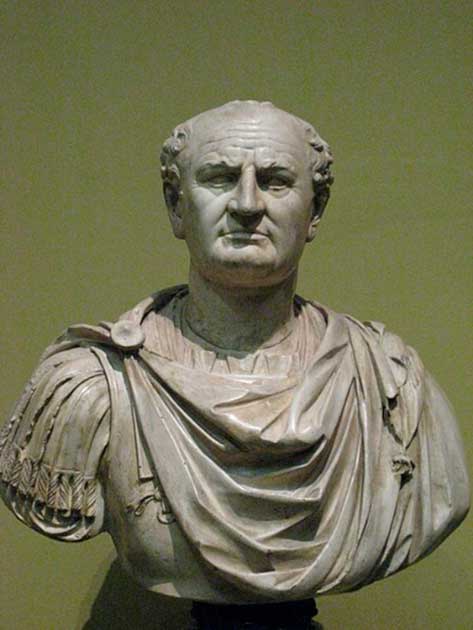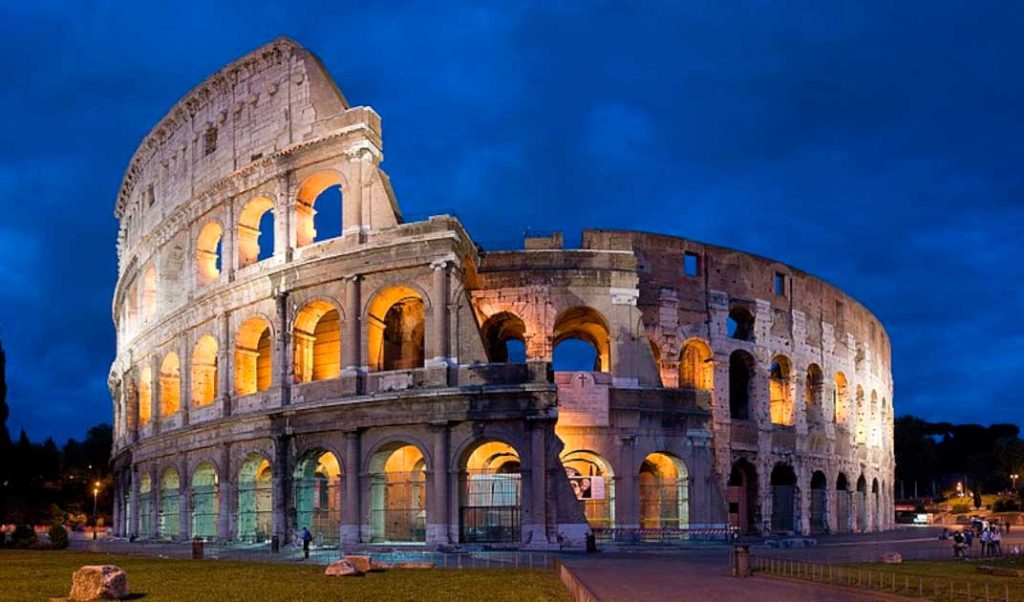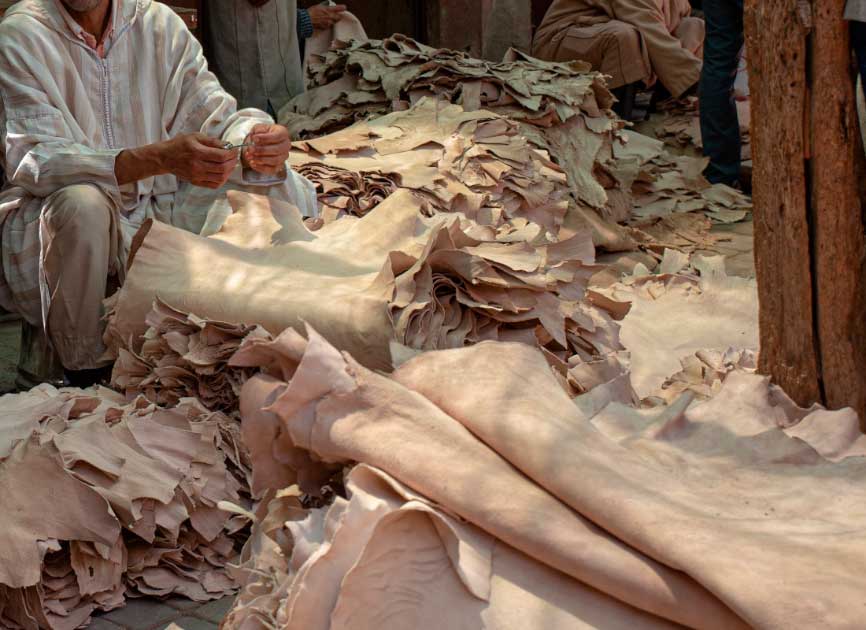There are many legacies of the Roman Empire. People tend to think first of what has survived, the grand buildings, famous landmarks and cities, but the daily life of a Roman citizen is less prominent. Not very many tend to think about their taxes.
But Rome certainly needed many taxes in order to pay for the organization of its vast empire and the military machine which had won it. This public purse also paid for landmarks in Rome such as the Colosseum, more properly known as a Flavian amphitheater.
The Flavian emperors may have built it, but they did not pay for it: that cost was shouldered by the citizens they ruled. And in order to fund all these projects, taxation needed to get more and more creative.
One of the most peculiar of these taxes the Roman empire turned to in apparent desperation was the Urine Tax. But where did it come from, and what did it do for Rome?
Panic on the Streets of Rome
In truth, this is not as crazy a concept as it might seem. Urine was an invaluable resource in ancient Rome, useful in leather tanning and as a caustic ingredient in cleaning.
A tax on its sale was first introduced by Emperor Nero but was soon repealed because of the outrage it caused the general public. It was not reintroduced until Emperor Vespasian, who succeeded Nero after he committed suicide in 69 AD.

Vespasian was one of the emperors that ruled in the Year of the Four Emperors, following the chaos in Rome that Nero’s suicide sparked. Happily for Vespasian, he was the last of the four and he established the Flavian dynasty that ruled the empire for the next 27 years.
Vespasian was a military general from the noble equestrian class, most famous for his military successes. He had participated as a legate of Legio II Augusta (the decorated Roman Second Legion) when the Roman Empire invaded Britain in 43 AD as well as helping to subjugate Judaea during the Jewish Rebellion of 66 AD, which saw Jerusalem burn.
Whilst besieging Jerusalem, news arrived that Emperor Nero had committed suicide: the door was open for an ambitious man such as Vespasian to take the throne. Vespasian was declared emperor by his troops in Egypt and Judaea, and quickly added the Roman troops in Syria and Pannonia to his side.
After winning a crucial battle against his rival Vitellius, he was declared emperor by the senate. Vespasian had won, and hoped to put an end to the disruption at the heart of the empire. But he needed funds.
Rome under Vespasian
Although he ruled for a decade, little is known about Vespasian’s time as emperor. We do know that during this time, he managed to reform the financial system of Rome and began large and publicly appealing building projects, including the Colosseum.

As well as this, he expanded Rome’s presence in Britain through his famous general Agricola. Vespasian’s rule has been hailed as the stabilizing of the system after the chaotic rule of Nero and his predecessors. This was highlighted by the fact that he was succeeded by Titus, his own son. This was the first time that this sort of hereditary transition of power had happened in Rome.
However, Vespasian’s rule was not an easy one. Suetonius records that when he arrived in Rome, Vespasian lacked support and backing. Historians have noted that during this time, there seems to be a dramatic increase in the amount of propaganda produced during Vespasian’s reign in response to this. People needed to be told how great their new emperor really was.
One of the main proponents of this was his philosophy of victory and the right to rule through successful conquest. This is unsurprising due to his own rise to the position of emperor. A tangible side effect of this is seen in the coins produced in this period. Nearly a third of all of the coins minted under Rome celebrated military victory.
Between the years of 71 AD and 79 AD, there is little written about Vespasian’s reign. What we can piece together comes from his building projects that survived him. It is also recorded that in this period, Vespasian survived many conspiracies.
Despite these threats, Vespasian rebuilt Rome by adding the temple of Peace and a temple to the Deified Claudius. In 75 AD, he restarted and completed the construction of the temple to Apollo that was begun under Nero.
Whilst he was rebuilding Rome, Vespasian also directed the expansion of the empire. Britain had revolted during the Civil War and so Vespasian sent Agricola to curb the rowdy Britons. Agricola helped to expand into northern Britain and left a stable government there: Britain would remain decidedly Roman for centuries.
But how did he fund all of this?
Taxes
Even before he became Emperor, Vespasian was concerned about raising money and taxes. Whilst he had been in Egypt, he had upset much of the local population by increasing taxes and selling off Imperial estates. When he was establishing himself in Rome, Vespasian claimed he needed the empire’s tax income tripled in order to put these systems back in order.

Ordinarily tax revenues should represent a sustainable portion of the income of the populace, for use in public projects which could be more efficiently paid for centrally than individually. Although Vespasian appeared to understand this, his dramatic increase to taxation pushed things out of balance.
- Mausoleum of Augustus: Why Are There No Tombs of Early Roman Emperors?
- The Death of Romulus: What Happened to the Founder of Rome?
As emperor, Vespasian sometimes doubled and in some of the harshest cases tripled the taxes paid by provincial territories and took back when the immunities that had been granted to Greek-speaking settlements. He reclaimed public land throughout Italy and introduced new taxes to the empire.
These included a tax to be paid by Jews of the Diaspora when they visited the Temple in Jerusalem. However, this was not the most bizarre.
For Vespasian reinstated the Urine Tax that Nero had begun. Whereas Nero quickly repealed the law, Vespasian did not. As noted urine was a valuable commodity in Rome, used to clean togas, whiten teeth (alarmingly), tan leather, and as a fertilizer. It was often collected from public urinals known as “fullonica” where chamber pots were emptied.
The urine tax included taxing both its collection and its use. Due to its widespread availability and many uses, it was a great way for the state to make money.

Unsurprisingly, the tax was not popular amongst those who used it for work, notably tanners, textile workers, and laundry operators. They so resented it that they renamed the public toilets the “Vespasians”. This has been a lasting legacy as in the French speaking world, where public toilets continued to be known as Vespasiennes.
Even Titus, Vespasian’s son, was not a fan. He found it gross. In a contemporary story, Titus expressed his disdain for the tax. Vespasian asked him to smell the coins in his pocket. Titus did and remarked they had no smell. Vespasian responded by saying that they came from urine.
Valuable Stuff
Taxes represent a social contract between the populace and their leaders. Taxation works best when it is fair, proportional, and where those who are taxed understand where the money goes.
What the urine tax reveals is that during Vespasian’s rule, little else mattered apart from making money. It may seem unusual to the modern world, but it was incredibly effective. By the time Vespasian died in 79 AD, Rome was cash rich and the city was starting to transform.
Vespasian may have squeezed his subjects for as much money as he could get, but the Rome we know today was started by him. In seeking to spend the money on public projects rather than to line his own pockets, perhaps he was justified in the urine tax after all.
Top Image: Roman toilets were often a source of useful urine for tanning and cleaning: was Vespasian right to tax the urine? Source: Stefano Bolognini / CC BY 3.0.
By Kurt Readman